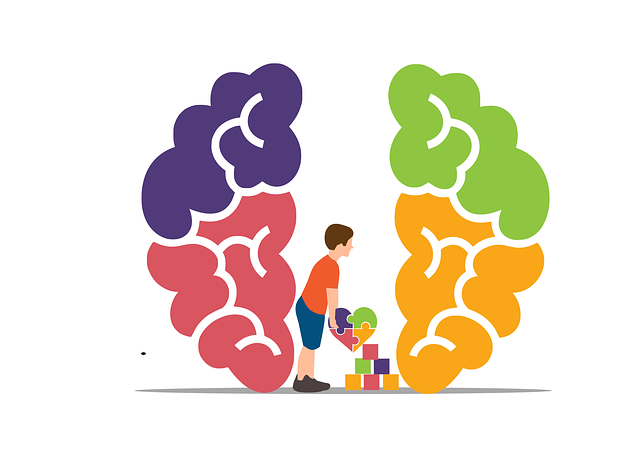Boulder Dialectical Behavioral Therapy (DBT) offers a structured crisis intervention approach that combines cognitive-behavioral techniques with mindfulness practices, empowering individuals with emotional regulation, distress tolerance, and interpersonal skills. Through journaling exercises and professional guidance, DBT enhances proactive crisis management, improves decision-making, and boosts resilience. This method, pioneered in Colorado, integrates principles through Community Outreach Programs, improving risk assessment and ensuring safety during crises. By fostering long-term resilience, DBT supports individuals in facing future challenges with equanimity.
“In moments of crisis, effective intervention can make a profound difference in an individual’s life. This comprehensive guide explores crisis intervention strategies, emphasizing the pivotal role it plays in mental health support. We delve into the proven Boulder Dialectical Behavioral Therapy (DBT) approach, combining acceptance and mindfulness for balanced care. Additionally, we offer practical tools, implementation best practices, and training resources to equip professionals and caregivers, ensuring they are prepared to navigate and resolve crises effectively.”
- Understanding Crisis Intervention: A Cornerstone of Mental Health Support
- The Boulder Dialectical Behavioral Therapy (DBT) Approach: Balancing Acceptance and Mindfulness
- Practical Strategies: Tools for Effective Crisis Intervention
- Implementation and Training: Equipping Professionals and Caregivers
Understanding Crisis Intervention: A Cornerstone of Mental Health Support

Crisis intervention is a critical component of mental health support, offering immediate assistance during times of intense emotional distress or impending danger. It involves a range of strategies aimed at stabilizing individuals, providing coping mechanisms, and helping them navigate challenging situations safely. At its core, crisis intervention focuses on empowering people to regain control, manage their emotions, and make informed decisions.
Boulder Dialectical Behavioral Therapy (DBT) provides a structured framework for effective crisis intervention. This therapeutic approach teaches individuals valuable skills in emotional regulation, distress tolerance, mindfulness, and interpersonal effectiveness. By integrating these components into daily life through mental wellness journaling exercises and guidance, folks can enhance their ability to manage crises proactively. Additionally, boosting confidence during such situations can significantly improve one’s resilience, enabling better decision-making and overall emotional well-being.
The Boulder Dialectical Behavioral Therapy (DBT) Approach: Balancing Acceptance and Mindfulness

The Boulder Dialectical Behavioral Therapy (DBT) Approach offers a powerful framework for crisis intervention by emphasizing acceptance and mindfulness. This therapeutic method, pioneered in Colorado, recognizes the importance of balancing intense emotions with clear, balanced thinking during crises. By teaching individuals to observe their feelings without judgment, DBT empowers them to develop emotional regulation skills, crucial for navigating high-stress situations.
Through a Community Outreach Program Implementation, mental health professionals can integrate these principles into their practice. By focusing on mindfulness, professionals enhance their ability to assess risks accurately, ensuring the safety of both clients and themselves during crises. This approach not only supports individuals in managing immediate distress but also fosters long-term resilience, enabling them to face future challenges with greater equanimity.
Practical Strategies: Tools for Effective Crisis Intervention

In the realm of crisis intervention, practical strategies are instrumental in guiding professionals to effectively support individuals in distress. One evidence-based approach that has gained prominence is Boulder Dialectical Behavioral Therapy (DBT). DBT combines cognitive-behavioral techniques with mindfulness practices, offering a comprehensive framework for managing intense emotions and impulsive behaviors. This therapy empowers individuals to develop crucial coping skills, enhance their ability to regulate emotions, and improve interpersonal effectiveness.
Complementing DBT, Social Skills Training and Compassion Cultivation Practices play pivotal roles in crisis intervention. Social Skills Training equips individuals with the necessary tools to navigate social interactions more effectively, fostering a sense of belonging and reducing feelings of isolation. Similarly, Compassion Cultivation Practices encourage self-compassion and empathy towards others, which can significantly enhance an individual’s resilience during challenging times. Together, these strategies create a robust support system, enabling folks to not only survive but also thrive in the face of crises.
Implementation and Training: Equipping Professionals and Caregivers

Implementing crisis intervention strategies effectively requires proper training and equipment for professionals and caregivers. The Boulder Dialectical Behavioral Therapy (DBT) approach offers a structured framework to handle intense situations, teaching individuals skills in emotion regulation, distress tolerance, effective communication, and mindfulness. Through comprehensive training programs, practitioners learn not only the theoretical aspects but also practical applications tailored to diverse settings.
This training emphasizes hands-on experience, role-playing scenarios, and peer feedback to ensure professionals are well-prepared for real-life crises. Moreover, fostering a robust self-care routine among caregivers is integral to crisis intervention guidance, promoting mental health resilience and preventing burnout. By integrating self-care practices alongside learning conflict resolution techniques, individuals can better navigate challenging situations while maintaining their own emotional equilibrium.
Crisis intervention is a vital aspect of mental health support, and the Boulder Dialectical Behavioral Therapy (DBT) approach offers a comprehensive framework. By combining acceptance and mindfulness, this therapy empowers professionals and caregivers to provide effective tools during challenging situations. The practical strategies outlined in this article, coupled with proper training, ensure that individuals in crisis receive the best possible care, fostering a more balanced and resilient mindset.











